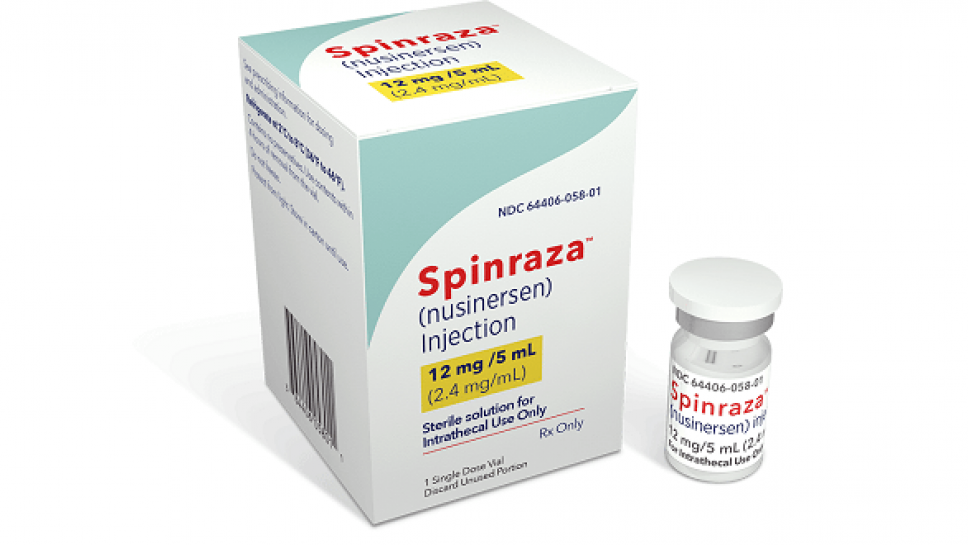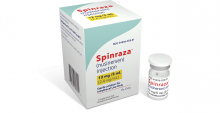
- Spinraza – the only treatment available for people with spinal muscular atrophy – has not been recommended for NHS funding by draft NICE guidance
- Without access to the treatment, children with SMA will irreversibly lose the ability to crawl, walk and swallow, and babies with the most severe form of the condition are likely to die
A life-changing drug for the devastating condition spinal muscular atrophy (SMA) has been rejected for funding on the NHS today, prompting fresh calls for a temporary scheme so patients can access the drug while evidence is collected on its long-term benefit.
NICE’s initial recommendation that the treatment, Spinraza, is not provided on the NHS is devastating for families. In the most severe cases, children born with SMA are unlikely to see their second birthday, but many of those receiving treatment have gone on to crawl and even walk.
Muscular Dystrophy UK, along with SMA Support UK and The SMA Trust, have consistently warned that Spinraza is one of many effective treatments for rare diseases that will struggle to win approval without more flexible processes.
The charities are calling for a temporary scheme to be introduced now so patients don’t miss out during the long approval process. While NICE acknowledged it will consider a temporary scheme, it said details put forward by Biogen were ‘vague’ and ‘currently insufficient’.
Giving the reasons for its decision, NICE said existing data did not show the impact of the treatment for all types of SMA, long-term benefits and cost. Muscular Dystrophy UK says this highlights the need for temporary scheme, which would allow more data to be collected while still enabling patients to benefit from the treatment.
Robert Meadowcroft, Chief Executive of Muscular Dystrophy UK, said:
Spinal muscular atrophy can be devastating and today’s news will be heartbreaking for the families of those living with the condition. Once again we are seeing families suffer due to the appraisal process being too limited to assess costly but life-changing rare disease drugs. The one glimmer of hope is for a temporary scheme that ensures access. We call on NICE, NHS England and the drug company, Biogen, to urgently come together and find a solution to provision and pricing so families can get Spinraza before more lives are lost.
The treatment has now been approved in the US and all major European countries. In England, Wales and Northern Ireland, children diagnosed with SMA Type 1 – the most serious form of the condition – can access the treatment through a temporary programme set up by Biogen in 2016 following successful clinical trials. However, there are no guarantees this scheme will continue indefinitely. In Scotland, Spinraza has been available on the NHS for children with SMA Type 1 since May. Children and adults in the UK with all other types of SMA do not have access to Spinraza, despite mounting evidence of its worth.
Three-year-old William Storr, from Immingham, Lincolnshire, has SMA Type 1. His parents were told that he was unlikely to live past his second birthday, but since last August he has had access to Spinraza through Biogen’s scheme, which has improved his head and hand movement and breathing. His mum, Kerry, said:
We’ve had to fight hard, but getting access to Spinraza has been a lifeline. Although it is early days in William’s treatment, the improvements in his respiratory function have been significant. We’ve also seen increased movement in William’s hands, feet and head, all of which is going a long way to increasing William’s independence and communication.
SMA is a cruel degenerative condition. We’ve seen the difference Spinraza has made to William in halting further deterioration and making huge improvements. For the first time we are hopeful for his future. We just hope NICE will make it available to all children who could benefit from it.”
Avery Bazin-Ball, two, from Braunston, Northamptonshire, has SMA Type 2. He was diagnosed aged 18 months, and requires 24/7 care. His dad, Alex, said:
SMA is relentlessly cruel, and it turns your life upside down. To hear that your child will never be able to walk, or will struggle to sit independently, is heartbreaking. All your hopes, dreams and plans for the future are completely thrown off course.
This news is such a blow to families like ours. For the first time, there is a treatment that can buy families more time to spend with their loved ones – yet we cannot access it.
It’s agonising to see your child slowly lose their mobility. But it doesn’t have to be this way. By approving Spinraza, NICE would throw families like ours the lifeline we so desperately need.
NICE’s recommendation is now open to consultation. Its final guidance on Spinraza is expected later this year.

